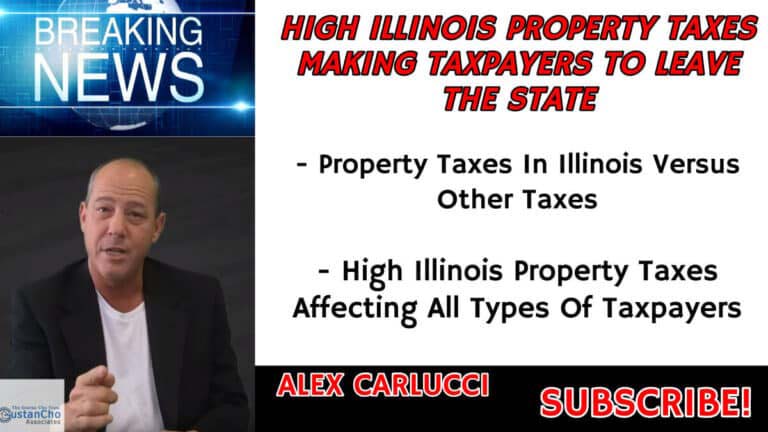Qualifying For A Mortgage After Temporary Unemployment
This Article Is About Qualifying For A Mortgage After Temporary Unemployment Gustan Cho Associates gets dozens call daily about Qualifying For A Mortgage After Temporary Unemployment.
- Millions of American workers got temporarily laid off after the coronavirus outbreak in February 2020
- Over 50 million Americans filed for unemployment
- Unemployment peaked to over 15 unemployment rate just a few weeks ago
- President Donald Trump signed the CARES Act which included financial relief for businesses and taxpayers so they can weather the shutdown until they can go back to work
- Many feared the coronavirus outbreak would kickstart another financial crisis just like the Great Recession of 2008
- Other feared another housing and credit collapse
- However, quite the opposite happened
- The economy is recovering quicker than expected
- Mortgage rates are at historic lows
- 30-year fixed-rate mortgages are now under 3.0%
- More and more workers are going back to work
- The unemployment rate has dropped under 10%
- With the exception of Illinois, governors have reopened their states and are encouraging people to go back to work and schools
- Many homebuyers who were ready to buy a house prior to the pandemic and were delayed due to temporary lay offs are not ready to purchase a home
The Economic Impact From The Coronavirus Pandemic On Americans
The coronavirus outbreak has shut down the U.S. economy:
- The U.S. economy was booming prior to the COVID-19 pandemic hit the nation in February 2020
- However, the coronavirus pandemic literally hit the nation like a freight train
- It was like the twilight zone
- Successful Americans who thought they had great job stability instantly lost their jobs
- Successful small business owners were forced to closed their doors until further notice from their state governors who declared a national executive stay at home order
- Many workers became unemployed
- Pre-approved homebuyers who were looking forward to becoming homeowners in 2020 had to put indefinite brakes on their dream of homeownership until further notice
- The U.S. economy is recovering at a super fast pace where many unemployed Americans have either gone back to work and/or found new and better jobs
- Many of those who had short term unemployment are wondering how the employment gap will affect their ability and eligibility in qualifying for a home mortgage
The team at Gustan Cho Associates have helped countless homebuyers with recent unemployment gaps qualify for a mortgage and close on their home loan in 2020.
Mortgage Guidelines For Qualifying For A Mortgage After Temporary Unemployment
- Millions of Americans were affected from the coronavirus pandemic
- Many pre-approved homebuyers had to put their plans on buying a new home on hold due to the uncertainty not just with the economy but with the future of their employment status
- Many pre-approvals were null and void
- Many lenders have increased their lender overlays due to the uncertainty in the secondary mortgage markets
- The Trump Administration did a great job in being proactive with the economic recovery efforts from the economic downturn the COVID-19 pandemic took on Americans
- The recovery is faster than expected
- The Central Bank lowered interest rates to zero percent
- The zero percent Fed rate plummeted mortgage rates to hit historic lows
- Many homebuyers who planned on buying a home in the future changed their minds in buying a house sooner than later
- The coronavirus pandemic has changed the way we work at the workplace
- Employers converted many jobs to become remote job positions
- Now more workers can work from home than ever before
- This is great news for people who want to be mobile and relocate
- Now you can work in any city, county, or state you want if you are a remote wage earner
- Many renters in living in the city are fleeing the high cost of city living and buying homes in the suburbs
- The housing market is hot
- There are more buyers of homes than inventory
- Many workers who got laid off from the coronavirus pandemic have either gone back to work or found new employment
One of the key questions many homebuyers had was How Will Temporary Unemployment Impact My Ability To Purchase A Home?
Qualifying For A Mortgage After Temporary Unemployment And Taking Advantage Of The Booming Housing Market
If you have been unemployed temporarily due to the coronavirus outbreak in 2020, you have nothing to worry about.
- In general, lenders want to see to a two year employment history with the same employer.
- However, the agency mortgage lending guidelines of FHA, VA, USDA, Fannie Mae and Freddie Mac are all the same on owner-occupant primary home financing
- You can have gaps in employment in the past two years and qualify for a mortgage
- Many lenders will have lender overlays on gaps on employment
- Lender overlays are additional lending guidelines that are above and beyond the minimum agency mortgage guidelines
- For example, a particular lender may require that borrowers be employed with the same employer for the past two years even though agency guidelines allow for borrowers to have had multiple jobs in the past two year
- No worries. Gustan Cho Associates has no lender overlays when it comes to gaps in employment
Many homebuyers are more than eager to get qualified for a mortgage today and take advantage of the booming housing market.
How Do Mortgage Underwriters Calculate Qualified Income On Borrowers With Employment Gaps In The Past 2 Years
Borrowers can qualify for a mortgage with gaps in employment in the past two years. This is how the agency mortgage guidelines work on gaps in employment:
- There is no waiting period on a new full time job if the borrower was unemployed for six months or less
- There is a six month waiting period on a borrower’s new full time job if the borrower was unemployed for six or more months
- The qualified income will be based on the salary and/or hourly wages based on a 40 hour workweek stated on the offer employment letter
- 30 days of paycheck stubs will be required prior to closing on the new full time job
- The wages of the previous job and/or jobs will not matter
- Only the wages of the new full time job will be used as the qualified income
- Overtime and bonus income cannot be used unless the borrower has a two year history of making such other income
- Part-time income cannot be used if the borrower does not have a two year history of making such income
- If you go from part-time to full-time income, you full time, then only your full time income will be used as qualified income
- If you go from a 1099 to W2 wage earner status, then only your W2 income based on your employment offer letter and/or paycheck stubs will be used and the prior 1099 income on your income tax returns will not be used
- There is no waiting period requirement on your new full time W2 income job if you go from 1099 to W2 income job
- If you go from a W2 income wage earner status to a 1099 wage earner job, then you need to be in the 1099 job for at least two years
For those who have two full time jobs, they need to be in both full time jobs for at least two years to be able to use both full time job earnings.







